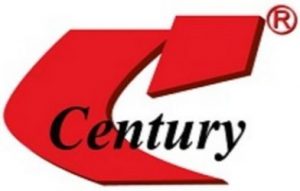Japan should aim to reach a free-trade agreement with the European Union next year or risk undermining EU interest in a deal, the 28-nation bloc’s chief negotiator warned.
Mauro Petriccione said an EU-Japan FTA could be struck within months after two-and-a-half years of talks if Japanese Prime Minister Shinzo Abe commits to scrapping import duties on European foods and drinks, scaling back non-tariff barriers for cars and opening up public procurement in the railway industry. In exchange, the EU is prepared to eliminate its tariff on autos from Japan and ease access to Europe for Japanese executives.
“For us, 2016 is very possible, it’s very desirable from a European point of view,” Petriccione told reporters on Thursday in Brussels. “If we don’t make it in 2016, we’ll have to explain why and we can’t exclude a resurgence of the skepticism toward the possibility of an EU-Japan FTA that we had before we started.”
In the shadow of EU-U.S. commercial talks, Europe and Japan are seeking an accord to expand their more than 100 billion euros ($108 billion) in annual goods trade and over 40 billion euros in services transactions. Japan is the EU’s No. 2 trade partner in Asia, after China. A commercial deal between Brussels and Tokyo would follow European agreements with South Korea, Singapore, Vietnam and Canada and the Trans-Pacific Partnership among nations including Japan and the U.S.
15th Round
With the 15th round of EU-Japan trade talks due to take place in February, Petriccione said the moment has come for compromises needed for an agreement.
“We have explained our position to each other ad nauseam,” he said. “We know the Japanese position inside out and Japan knows our position inside out. It’s time that we move on and start to say ‘OK, what is the compromise?’”
The EU insists that Japan remove tariffs on European foods such as chocolate, pasta, tomato paste and cheese, according to Petriccione. The bloc would refrain from demanding duty-free access to the Japanese market for “sensitive” farm goods in Japan such as rice, beef and pork, he said.
“It is proving difficult and more difficult than we had envisaged,” Petriccione said. “We are very competitive in all sorts of processed agricultural products. We don’t really see why the very large majority of European exports, including the agricultural sector, are threatening Japanese interests. We can see a few commodities where there may be an issue.”
Japanese Pledges
The EU also wants firmer Japanese pledges to remove non-tariff barriers for European cars in exchange for phasing out the bloc’s 10 percent duty on autos from Japan. The European goal is to ensure that vehicle standards and administrative regulation in Japan don’t unduly impede market access, according to Petriccione.
“We need to have a guarantee that the reduction in costs that our producers will enjoy when they sell to the Japanese market is comparable to the reduction in costs that the tariff elimination will bring to Japanese producers when they sell in Europe,” he said. “We’re not against a speedy elimination if we can justify it.”
Regarding public procurement, Petriccione said Europe’s biggest gripe with Japan has been the country’s practice of subjecting the rail market to an “operational safety clause” that lacked transparency.
“Until recently, we were never even told how that clause operated,” he said. “For us, cleaning that up is essential.”
An initial accord with Japan on this point needs to be followed up with more Japanese concessions for the European railway-equipment industry.
“They will maintain a safeguard clause,” he said. “The question is: how do they apply it to a preferential partner who can offer high-quality, safe equipment?”
By Jonathan Stearns
Bloomberg
17/12/2015
Quote from: “http://www.bloomberg.com/news/articles/2015-12-17/japan-is-pressed-by-eu-to-reach-free-trade-agreement-in-2016“


